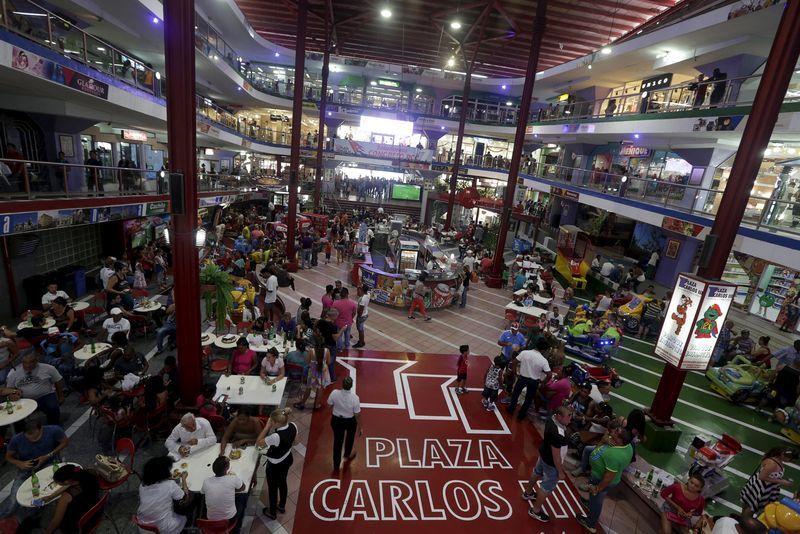By Marc Frank
HAVANA (Reuters) - Cuba on Friday will lower the price of some basic household goods at thousands of state-run hard currency stores, employees of two retail outlets in Havana said on Thursday.
The move appears aimed at quieting grumbling among Cubans who have not benefited from market-oriented reforms and are upset over rising food prices and inequality.
According to a document described as a leaked Ministry of Finances and Prices list that circulated on the internet, the goods include such items as cooking oil, chicken, hamburger meat and soup, and price cuts vary from 10 percent to 30 percent. The government did not immediately confirm the information.
An employee at a Havana outlet, who asked not to be identified, would only state they included "basic products people need such as toothpaste, detergent and cooking oil."
The measure comes less than a week after President Raul Castro, speaking to a Communist Party Congress, admitted market-oriented reforms begun five years ago have yet to trickle down to many residents who remained hard pressed to make ends meet.
In communist-run Cuba, the state has a monopoly on imports and the sale of imported goods, which are sold at the hard currency stores.
The Congress was held largely in secret and produced no announcement of new economic measures, frustrating residents who complain the reforms are moving too slowly.
Miriam Rodriguez, a cashier at a Havana supermarket, confirmed rumors circulating in Havana since Wednesday.
"We have to work late today to organize all the new prices of basic goods for tomorrow," she said.
Ariadna, another store employee, said, "There is a directive that has come down to the stores announcing the reduction in prices."
The retail outlets sprang up after the fall of former benefactor the Soviet Union led Cuba to allow the dollar to circulate freely alongside the peso.
They have a mark-up of a minimum of 240 percent, ostensibly a tax to help those who cannot afford what are called the "dollar stores".
In 2004 the dollar was replaced by a local equivalent called the convertible peso (CUC).
The CUC is pegged to the dollar, while the peso is valued at $0.04, angering a population which is paid in the latter at an average equivalent of 25 CUC per month but often has to make essential purchases in the hard currency stores.

The government pledged in 2013 to eliminate the CUC, but at this week’s congress admitted it had only taken the first steps toward that goal.